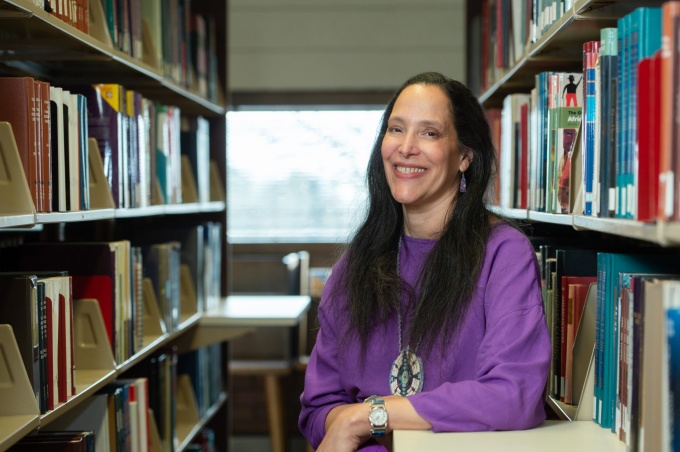Hilary Weaver Retires

Interview conducted by Jana Eisenberg
Hilary N. Weaver, DSW, has been on the faculty at our school since 1993. As she looks toward the next phase of her professional life (hint: she’s retiring from UB, and will no longer be in the classroom, but she’ll be plenty active), she spoke with Mosaics about her legacy at UB and her goals to help shape the future of social work education.
What are some highlights from your time at the UBSSW?
I’m particularly proud of building our global initiatives. Around 2012, I took on the administrative role of associate dean for academic affairs, and thought about ways to make my mark. I realized that I wanted to build on diversity initiatives—and for those initiatives, like addressing social issues, to become normal and regular things that the school does; part of our implicit curriculum. Working with others, we established a Global to Local monthly luncheon series. We also created an annual day long symposium; issues we’ve highlighted include Syrian refugees, missing and murdered Indigenous women, and environmental justice. In our Community Conversations series we’ve focused on issues like racial justice and economic inequality. Rather than just attending and listening, we hoped that people would be moved to take action. We also have posted statements about important topics in the news. These initiatives show everyone— others within the university, community, staff, faculty and current and potential students—that social workers sees these areas as important, in fact, central to our work.
Why retire now?
I’m part of the pandemic-related trend of people reevaluating their lives, thinking about what they want to do and what’s important. I am proud to have built my career here. And this is not a standard retirement—yes, I’m stepping away from the day-to-day of social work education and academia, but now I have opportunities to “make my mark” at a different level. To take my skills and vision, and help shape the social work profession.
Exciting. What will you be doing?
I was recently elected chair of the board of directors of the Council on Social Work Education. This national body oversees every accredited social work program in the country; I am the first Indigenous woman in the position, and also have an Indigenous vice chair/ secretary. This is an opportunity to re-envision social work education at a different scale, looking at and helping shape where it should go. I also have been named the inaugural global Indigenous commissioner for the International Federation of Social Workers. This worldwide body has a history of membership by country; it’s never had a structure that allowed for Indigenous voices and input. It took years of advocacy; now, for the first time ever, the organization has established an Indigenous commission that I now convene. I feel privileged that I have these opportunities, and I believe they are “the right thing at the right time.” It is meaningful that I’m going to finish out my career making a difference on a large scale, which in no way takes away from what I’ve done at UB.
Your work has been inseparable from your identity as a Lakota woman and someone who is passionate about helping displaced people, like Indigenous populations and refugees, who have experienced trauma and who are enveloped in foreign cultural contexts. Can you share any plans or desires related to that?
I will also remain involved in building and strengthening the Indigenous and Tribal Social Work Educators’ Association, so that when the time really does come for me to step away, there will be a formalized infrastructure for Indigenous people in social work education. This goes hand-in-hand with infiltrating traditional organizations with Indigenous ideas.
Any last thoughts?
All of this work is in parallel: strengthening both organizations and my colleagues, helping open doors for people who are coming behind me, like those ahead of me did for me. I could only build my career because of those who came before and did the work that they did.